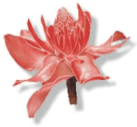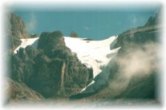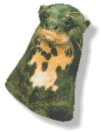The Amazing Nature
Peru is part of these group of twelve countries called "megadiverse", because all of them contain between 60-70% of all the biological diversity of our planet. And that is a good reason to travel and discover the secrets of nature hidden in the vast and plentiful rainforest, the freezy but beautiful Andean highlands, the dry but fertile coast belt; and the richest sea of the world, the Peruvian Sea region. Some travellers and naturalists have created the statement that a trip from the shore of the Peruvian sea to the highlands and then to the rainforest is similar to a journey from the equatorial line to the poles, going by all the natural regions of the Earth. This is completely true, because Peru has 84 of 104 zones of life available in our planet (Holdridge) and 28 kinds of climate from a total of 32 (Thornwaite) in the Earth ! This explosion of life is protected in Peru by a system of more than 40 national parks and reserves that covers almost the 10% of the country's area. A great number of species of flora and fauna are found here, including some which are in extinction danger. Mammals, birds, reptils, fishes and insects live in varied ecosystems with different weather conditions. For example, Peru is considered the most diverse country for birds with more than 1700 species only in the Amazon area. This country also owns the record of having the third greatest mammal diversity and the fifth greatest plant diversity in the world. As it is known, a great part of the raw material for medicine is taken from the Peruvian tropical forests. There are thousands of plant species that remain unknown until today, but in the future they will be the cure for today illnesses. Make a responsible ecotravel by following these basic tips:
"...If in case of a planet catastrophe we would have the choice
to choose one country to save and rebuild the planet
from it, undoubtedly I would choose Peru"
David Bellamy, english scientist

We encourage you to visit this land, feel the enchantment of nature and preserve one of the last enclosures of wildlife in our world.
- Avoid buying articles made from skins, turtle shells, feather, animal bones or dissected species, is illegal.
- When exploring or trekking, do not drop litter, try to have a waste plastic bag with you.
- Do not light fire in forest areas or national parks, talk with the guardaparques about prohibitions.
- If taking guided trips, first look around who offers the best service with the minimum impact for nature.
- Support to conservation organisations based in Peru by donating money or doing volunteering there.


